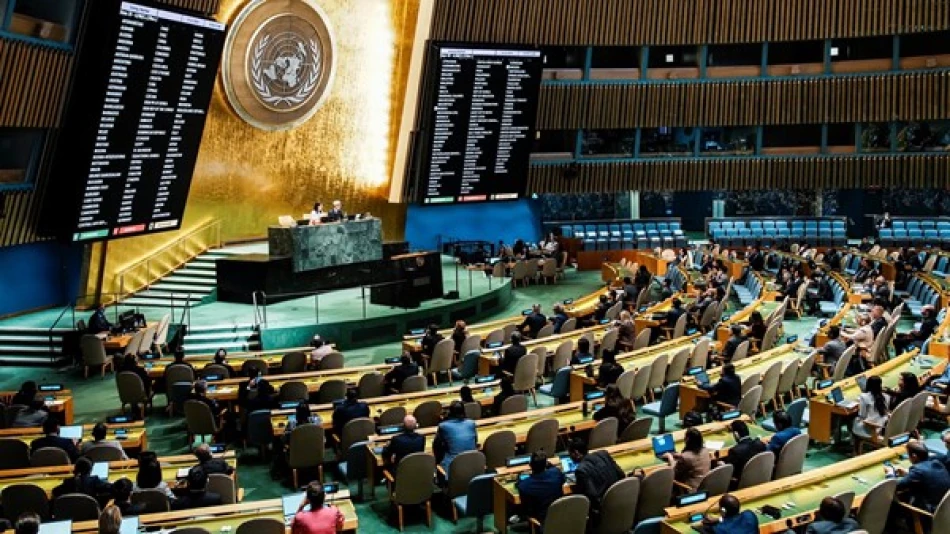
UN Overwhelmingly Approves Two-State Solution Resolution
UN General Assembly Overwhelmingly Backs Two-State Solution in Historic Vote
The United Nations General Assembly delivered a resounding endorsement of Palestinian statehood, with 142 nations voting to support the "New York Declaration" calling for implementation of a two-state solution. The vote represents one of the strongest international mandates for Palestinian independence in recent years, signaling growing global impatience with the status quo in the Middle East.
Decisive International Support
The resolution secured backing from 142 UN member states, while only 10 countries opposed it and 12 abstained. This overwhelming margin—representing nearly three-quarters of the UN's 193 members—demonstrates unprecedented international consensus on the Palestinian question, even as the conflict continues to escalate on the ground.
The seven-page declaration emerged from an international conference held at the United Nations in July, co-hosted by Saudi Arabia and France. This diplomatic partnership itself signals a significant shift, bringing together European diplomatic tradition with Arab regional leadership in a coordinated push for Palestinian statehood.
Strategic Timing Amid Regional Upheaval
The vote comes at a critical juncture as the Israel-Palestine conflict has intensified dramatically since October 2023. Unlike previous symbolic resolutions, this declaration carries added weight due to its timing—arriving as international patience with military solutions appears to be waning and diplomatic alternatives gain urgency.
Saudi Arabia's Diplomatic Gambit
Saudi Arabia's co-hosting role represents a calculated diplomatic investment. The kingdom has previously indicated that normalization with Israel remains contingent on progress toward Palestinian statehood. By spearheading this UN initiative, Riyadh positions itself as a key broker while maintaining leverage in future regional arrangements.
Implications for International Relations
The vote creates new diplomatic pressure on major powers, particularly the United States, which has historically blocked similar initiatives in the UN Security Council. While General Assembly resolutions are non-binding, they carry significant political weight and can influence international law over time.
European nations' support for the declaration also reflects growing divergence from traditional U.S. positions on the conflict. This shift could complicate Western coordination on Middle East policy and potentially affect broader geopolitical alignments.
Economic and Security Ramifications
The overwhelming support suggests that international isolation of current Israeli policies may deepen, potentially affecting trade relationships, investment flows, and security partnerships. Conversely, it could accelerate international recognition and support for Palestinian institutions, potentially influencing future aid and development programs.
A New Diplomatic Baseline
This vote establishes a clear international benchmark that future diplomatic initiatives will likely reference. With nearly 75% of UN members on record supporting the two-state framework, any sustainable peace process will need to account for this level of global consensus. The challenge now shifts from building international support to translating diplomatic momentum into concrete progress on the ground.
Most Viewed News

 Layla Al Mansoori
Layla Al Mansoori






